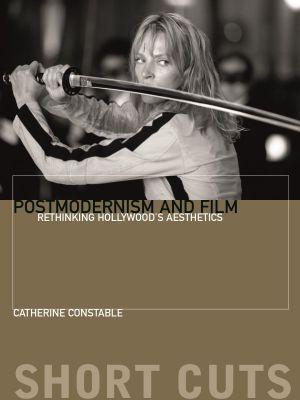Postmodernism and Film

- Authors
- Constable, Catherine
- Publisher
- Wallflower Press
- Tags
- per004020 , performing arts , film & video , history & criticism , per004030 , philosophy , guides & reviews
- ISBN
- 9780231850834
- Date
- 2015-06-30T00:00:00+00:00
- Size
- 2.42 MB
- Lang
- en
This volume focuses on postmodern film aesthetics, and contemporary challenges to the aesthetic paradigms dominating analyses of Hollywood cinema. It explores conceptions of the classical, modernist, postclassical/new Hollywood, and their construction as linear history of style in which postmodernism forms a debatable final act. This history is challenged by using Lyotard's non-linear conception of postmodernism in order to view postmodern aesthetics as a paradigm that can occur across the history of Hollywood. This study also explores 'nihilistic' theorists of the postmodern, Jean Baudrillard and Frederic Jameson, and 'affirmative' theorists, Linda Hutcheon and Judith Butler, charting the ways in which they provide the means to conceptualise nuanced and positive variants of postmodern aesthetics and deploying them in the analysis of Hollywood films, including Bombshell, Serial Mom and Kill Bill.
This study examines postmodern film aesthetics and challenges to the aesthetic paradigms dominating film analysis. It explores conceptions of the classical, modernist, postclassical/new Hollywood styles and their construction as a linear history in which postmodernism informs a debatable final act. This history is challenged through Lyotard’s nonlinear conception of postmodernism, which recasts postmodern aesthetics as a paradigm ocurring across the history of Hollywood. The book also explores “nihilistic” postmodern theorists Jean Baudrillard and Frederic Jameson and “affirmative” theorists Linda Hutcheon and Judith Butler, charting how they help conceptualize variants of postmodern aesthetics and deploy them in the analysis of such films as Bombshell (1933), Serial Mom (1994), and Kill Bill (2003).
This volume focuses on postmodern film aesthetics and contemporary challenges to the aesthetic paradigms dominating analyses of Hollywood cinema. It explores conceptions of the classical, modernist, post-classical/new Hollywood, and their construction as linear history of style in which postmodernism forms a debatable final act. This history is challenged by using Jean-Francois Lyotard's non-linear conception of postmodernism in order to view postmodern aesthetics as a paradigm that can occur across the history of Hollywood. This study also explores 'nihilistic' theorists of the postmodern, Jean Baudrillard and Frederic Jameson, and 'affirmative' theorists, notably Linda Hutcheon, charting the ways in which the latter provide the means to conceptualize nuanced and positive variants of postmodern aesthetics and deploying them in the analysis of Hollywood films, including Bombshell , Sherlock Junior , and Kill Bill.